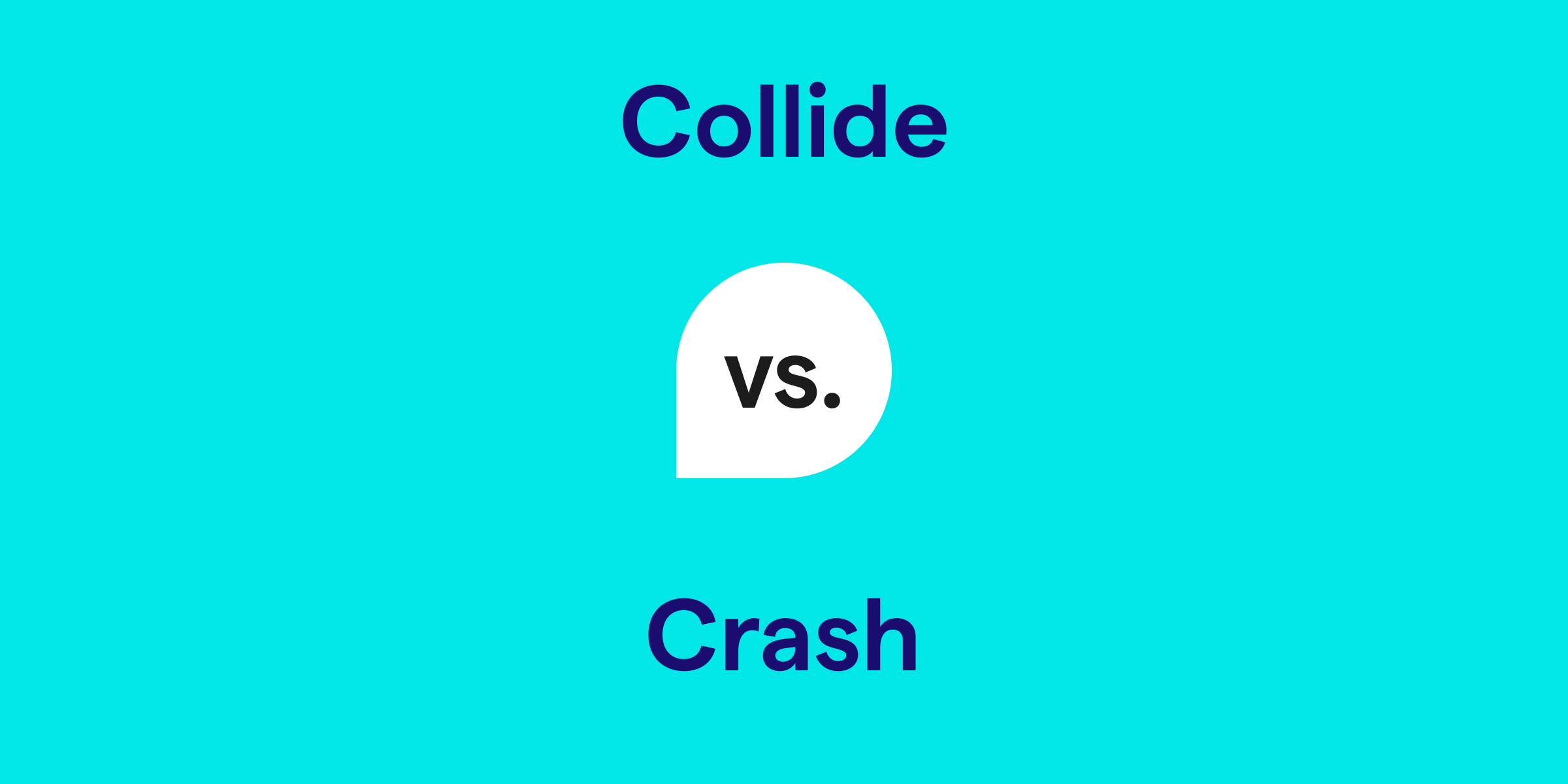Collide vs. Crash: What's the Difference?
Collide and crash may seem synonymous, but they have distinct uses in different contexts. Collide refers to when two or more objects come together with force, often unexpectedly, without suggesting the outcome of such an event. Crash, on the other hand, often implies a violent impact that results in damage or destruction, and is commonly used in reference to vehicles or structures.

How do you use the word collide in a sentence?
The word collide is used to describe an event where two objects come into contact with each other forcefully. It is commonly used in physics to describe events without bias towards any damage done and can be used metaphorically to describe concepts, ideas, or forces that come into conflict.
Examples of collide in a sentence
- The two cars collided at the intersection, causing traffic to back up for miles.
- During the experiment, we observed particles that collide and bounce off each other.
- In the debate, the candidates' opposing policies collided, creating a heated exchange.
How do you use the word crash in a sentence?
Crash typically conveys a sense of destruction or a severe impact. It can describe vehicles colliding with something to the point of damage, but can also extend to markets or computers failing. The term conveys a greater degree of severity compared to collide.
Examples of crash in a sentence
- After the tire blew out, the truck crashed into the guardrail.
- The stock market crash of 1929 led to the Great Depression.
- I couldn't save my document before the computer crashed.
Collide and crash definition, parts of speech, and pronunciation
Collide definition:
To collide is to come together with solid or direct impact, especially when in motion.
Collide parts of speech:
Collide pronunciation:
Collide is pronounced as [kuh-lahyd], with emphasis on the second syllable.
Crash definition:
A crash involves a powerful and often damaging impact, frequently resulting in destruction or a sudden failure.
Crash parts of speech:
Crash pronunciation:
Crash is pronounced as [krash], with a sharp and short 'a' sound.
To collide is to come together with solid or direct impact, especially when in motion.
Collide parts of speech:
- Verb (intransitive): When two objects collide, neither is typically given grammatical preference; e.g., 'The planets collided in a massive celestial event.'
- Verb (transitive): Less frequently, collide can also be used transitively; e.g., 'The hockey player collided a shoulder into his opponent.'
Collide pronunciation:
Collide is pronounced as [kuh-lahyd], with emphasis on the second syllable.
Crash definition:
A crash involves a powerful and often damaging impact, frequently resulting in destruction or a sudden failure.
Crash parts of speech:
- Noun: As a noun, crash describes the event itself; e.g., 'The investigators began to analyze the crash site immediately.'
- Verb: As a verb, it describes the action; e.g., 'If the system crashes again, we'll lose all our data.'
Crash pronunciation:
Crash is pronounced as [krash], with a sharp and short 'a' sound.
Collide vs. Crash in a nutshell
In essence, collide and crash both involve forceful impact, but their usage diverges based on the context of the event. Collide is a more neutral term concerning the event of a forceful meeting, while crash implies an outcome involving damage or destruction. Understanding these nuances can clarify communication, particularly in technical, scientific, or descriptive writing.
Get AI Writing Assistance Wherever You Type
Make sure your vocabulary is on point and every punctuation mark is in the right place, no matter where you’re working. Grammarly works across more than 1 million websites and apps so you can improve your writing without copying, pasting, or breaking focus.

More Commonly Confused Words
Interest piqued? Pore (not pour) over other commonly confused words to help your writing reach peak (not peek) performance.